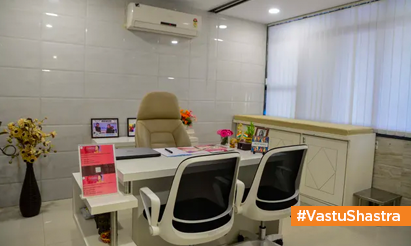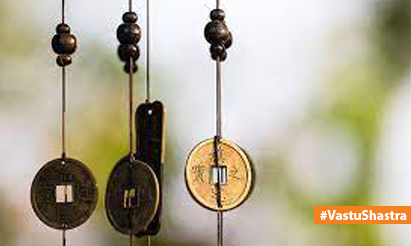Vastu Tips for Study Room: Best Directions and Colors for Success
Your study area serves as a space for learning, fostering creativity, and establishing a solid academic foundation. According to study room Vastu principles, the arrangement and alignment of the study room play a crucial role in enhancing concentration, productivity, and overall learning outcomes. Consider incorporating Vastu tips for the study room, such as the best direction for the study table, choosing appropriate study room colors as per Vastu, and positioning the study room in a favorable direction to achieve positive energy and academic success.
Importance of Study Room Vastu
The study room’s Vastu alignment has a major influence on attention, creativity, and learning efficiency, making it more than just a place to read or work. By putting study room Vastu concepts into practice—such as orienting the study table correctly and selecting the right colors for the space—it is possible to establish a setting that is beneficial for focus and memory retention. Vastu is a crucial consideration in study room design since it promotes academic performance, improves good energies, and lowers distractions when the study area is oriented in the right direction.
Vastu tips for study room
Vastu design concepts may greatly enhance positive energy flow, learning efficiency, and focus in a study space. The arrangement of the study table, the direction in which chairs are arranged, and the color scheme all have a significant impact on improving concentration and output. By using these Vastu study room suggestions, you may create a space that supports both academic achievement and mental clarity.

Tips for Study Room Direction as per Vastu
Study room Vastu holds that your study room’s optimal orientation and location may have a big impact on your ability to concentrate, learn, and work efficiently overall. Orienting the study room towards the north-east, east, or west is appropriate as these directions are associated with focus and positive energy. To improve focus and memory, face either the north or the east with the study table. To create a peaceful, orderly space that is ideal for learning, make sure the study area has lots of natural light and is clutter-free.
Tips for Direction of Study table as per Vastu
Orienting your study table correctly is essential for concentration and academic performance. The study table should face either the east or the north in accordance with Vastu Shastra in order to draw beneficial energies and improve focus. Vastu states that studying with your back to the east is optimal as it symbolizes learning and progress. Avoid positioning the study table facing a blank wall or beneath a beam as these settings might impair mental clarity.
Tips for Light of your Study Room as per Vastu
Natural light is necessary to create a space that is uplifting and invigorating, according to study room Vastu. The best orientation for a study room is towards the north or east, where enough sunshine may penetrate and create a lively learning environment. Make sure the study table is towards the left side so that natural light may reach it. According to Vastu principles, adequate lighting removes shadows, enhances attention, and increases productivity, making it a crucial component of any study space.
Tips for Study Room Colours as per Vastu
According to Vastu, choosing the appropriate study room colors may have a big influence on concentration and mental clarity. Choose bright colors like blue, yellow, and green; they encourage creativity, learning, and serenity. Stay away from colors that are too bright or dark as they might be distracting and make it difficult to concentrate. Employ pastel colors for the walls and furniture to create a calm, well-balanced space that encourages productivity. These Vastu colors may be used to design a study area that is welcoming and promotes productive learning.
Tips for Space of your Study Room as per Vastu
Vastu Shastra advises that a study area should be roomy and clutter-free to provide the perfect atmosphere for learning. Arrange the study table so that positive energy may flow freely and it is not pressed up against the walls. Make sure there is enough room between furniture items to allow for comfortable mobility and to encourage concentration and mental clarity. Vastu principles for the study room state that an open layout promotes greater focus and learning, therefore keep the space tidy and avoid packing it with extraneous stuff.
Tips for Good Air Circulation in Study Room as per Vastu
In order to keep the study space healthy and productive, proper air circulation is crucial. According to Vastu Shastra, windows should be oriented towards the east or north to maximize natural light and fresh air movement. Make sure there is enough airflow in the study space to remove any stagnant energy and create an environment that is favorable to learning and concentration. Vastu principles for study rooms advise against obstructing airflow with bulky furniture or clutter since proper air circulation promotes positive energy flow and mental clarity.
Tips for Decor Items in your Study Room as per Vastu
The study room’s décor should be carefully designed to promote optimism and concentration. As per the principles of Vastu Shastra, you may establish a peaceful learning environment by using inspirational sayings, informative posters, or peaceful artwork. Mirrors and water features should not be placed since they might be distracting. Choose indoor plants that promote fresh air circulation and pleasant energy, such as tulsi or bamboo. Vastu suggests that a well-designed study space may enhance focus, productivity, and a peaceful learning atmosphere.
Tips for Placement Symbols of Wisdom as per Vastu
Study spaces that display wise symbols can improve concentration and understanding. Vastu Shastra states that objects that encourage intelligence and study should be placed in the north-east or east, such as globes, books, or statues of the Goddess Saraswati. Further enhancing the positive vibe in the room is the use of symbols like educational charts or statues of owls, which are considered a symbol of knowledge. Making sure wisdom symbols are positioned correctly in accordance with Vastu aids in drawing focus and achievement.
Tips for Mirror Direction in Study Room as per Vastu
Mirrors should not be in the study space since they reflect energy and might be distracting, according to study room Vastu. If a mirror is required, make sure it isn’t positioned directly across from the study table or in such a way that it reflects study materials or books. Mirrors should ideally face either north or east to balance energy flow and avoid any detrimental effects on focus. Maintaining a concentrated study space can be facilitated by using these Vastu mirror placement suggestions.
FAQs
Which direction is best for the study room?
The best directions are northeast, east, or west, as they promote positive energy and focus.
Which direction should I face while studying?
Face east or north for improved concentration and memory retention.
Which room is best for study?
The study room should ideally be located in the northeast or east corner of the house.
Which direction is not good for study?
South and southwest directions are not recommended for study purposes as they may hinder concentration.
Which God should be kept in the study room?
Place an idol or image of Goddess Saraswati, the deity of wisdom and knowledge, in the study room.
Which color is lucky for a study room?
Light shades like green, blue, and yellow are considered lucky as they promote calmness and creativity.
Which color is not good for a study room?
Avoid dark colors like red or black as they can cause distractions and reduce concentration.
Which direction should your study table face?
The study table should face east or north for better focus and positive energy flow.
Disclaimer: The views expressed above are for informational purposes only based on industry reports and related news stories. PropertyPistol does not guarantee the accuracy, completeness, or reliability of the information and shall not be held responsible for any action taken based on the published information.




